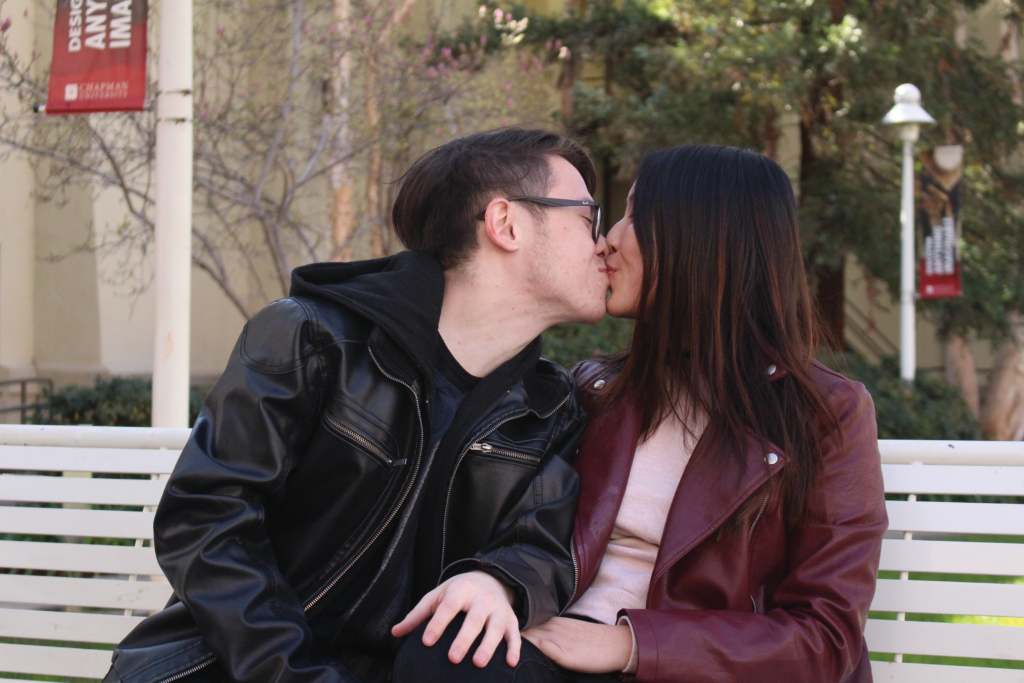
Written by Mitali Shukla
Valentine’s Day: It’s a holiday filled with romantic imagery and portrayals of happy couples, often depicted as heterosexual. But for some members of the LGBTQIA+ community, love, sex and romantic holidays can be complicated.
“Every queer person has the idea that no matter how accepting the world is, there’s always going to be that thought in the back of your mind: ‘What if it isn’t?’” said Emma Barda, a sophomore documentary film major.
The LGBTQIA+ community is commonly referred to by the first four letters, and the asexual community is considered a relatively new category in the group. Junior music education major Ian Policarpio identifies as asexual.
“I understood the (difference) between sexual attraction and romantic attraction. I had a good grasp of that before I was even dating him,” said Policarpio’s girlfriend, freshman piano performance major Victoria Nguyen.
Policarpio describes their relationship as hetero-romantic, which Policarpio defines as a heterosexual couple whose relationship is based on romantic attraction. When asked if sex was an important part of their relationship, Nguyen said she didn’t think so.
“It’s not that I think sex can’t be romantic, but sex itself does not equate to romance,” Nguyen said. “You can have sex with someone because you love them, but just because you have sex with someone doesn’t mean you love them.”
Asexuality has only recently been part of LGBTQIA+ community, and Policarpio grew up feeling like he didn’t have a label to identify his sexuality.
“I went through my whole life feeling like there was something off about me,” Policarpio said. “(Identifying as asexual) gives me a lot of hope to have a word to describe how I am and to know that there are other people out there that are the same as me.”
Anthony James Duff, a sophomore business administration major, believes that gay members of the LGBTQIA+ community experience uncertainty about their sexuality and how others will react to their identities.
“In Ancient Greece, (gay men were) quite celebrated; it was a normative thing, an ideal sexual relationship,” said Bernard McGrane, a Chapman sociology professor.
For Duff, who identifies as gay, sex is an important part of relationships in the gay community.
“Gays don’t get to experience the fun, loving (parts) of relationships,” Duff said. “A lot of (them) don’t come out until they’re 18, so they don’t experience a lot of that.”
And, Duff said, because gay people often enter the dating pool later, there tends to be a heavier emphasis on sex due to the age demographic.
Promiscuity in the gay male community is more prevalent, McGrane said.
“(But in the) foundation of intimate relationships, we’re equal,” he said.
Barda said she’s sometimes worried in the past about how others will perceive intimate gestures.
“Can I hold their hand? Do I feel comfortable kissing this person in public? In this neighborhood?” Barda said.
Normalizing the LGBTQIA+ community is a “work in progress,” she said.
“There’s no magical solution to (acceptance) other than time,” Barda said.
What the members of the community fear, Barda said, are those who might respond negatively to “coming out” announcements.
Society can sometimes react differently to those who deviate from the norm,” McGrane said.
“We humans have a hard time with ‘otherness,’” he said. “If it is strange, it is different, it is other. Get rid of it. It’s threatening,” McGrane said.
Prominent figures and celebrities aren’t immune. “Empire” actor Justin Smollett was physically attacked in January by two individuals who were allegedly using homophobic and racial slurs in Chicago, Illinois, according to the Associated Press.
“It goes to show that the majority (of Americans) accept (homosexuality), but there is still an imminent threat of the “radical minority,” Duff said.

